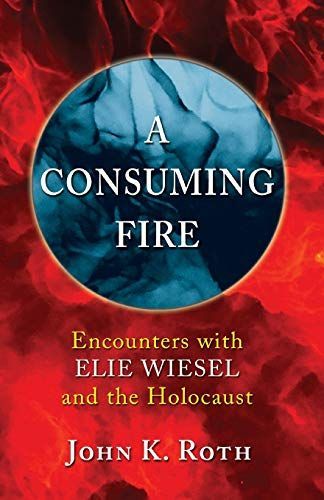
A Consuming Fire Encounters with Elie Wiesel and the Holocaust
No catastrophe challenges treasured beliefs and cherished hopes more than the Holocaust, Nazi Germany's genocide against the European Jews during World War II. Fueled by virulent, racist anti-Semitism, that disaster, which targeted Judaism as well as every Jewish life within the Third Reich's lethal grasp, still underlines the fragile status of human rights and ethics, still undercuts optimism about human "progress," and still undermines confidence about God's moral authority, providential engagement with human history, and even God's existence itself. Elie Wiesel, who died in 2016, was one of the relatively few Jews who survived Auschwitz. Before and after receiving the Nobel Peace Prize in 1986, he wrote profoundly in varied genres about the reverberations of the Holocaust. In A Consuming Fire, John K. Roth, a Christian philosopher transformed by Wiesel's writings and friendship, explores how to cope constructively with the daunting realization that Christianity and Western philosophy were deeply implicated in the Nazi genocide--so much so that, in the case of Christianity, one can credibly argue: No Christianity = No Holocaust. A Consuming Fire is not a biography, a literary analysis, a philosophical critique, or a history. Instead it offers a story all its own--one that seeks to enliven a post-Holocaust Christian humanism, an outlook that Roth shares by underscoring his own journey, his quest to be responsible and accountable, as he responds to Holocaust challenges intensified poignantly and insistently by Wiesel's testimony.